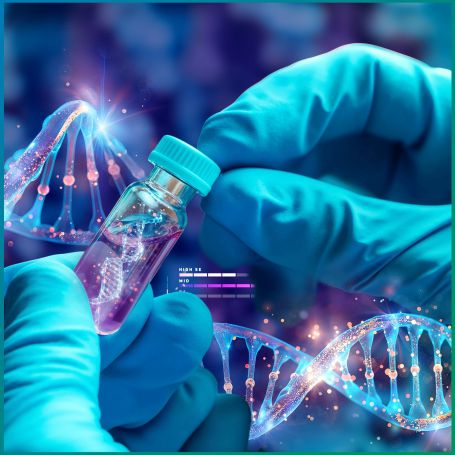
Sex Hormone-Binding Globulin (SHBG) is a protein produced primarily in the liver that binds to sex hormones such as testosterone, dihydrotestosterone (DHT), and estradiol (an estrogen)


The SHBG blood test measures the concentration of sex hormone-binding globulin in the bloodstream. SHBG binds to sex hormones, particularly testosterone and estrogen, and controls the amount of active hormones available for the body’s use. By binding to these hormones, SHBG regulates how much free (bioavailable) hormone circulates in the body.
The SHBG blood test pune provides insight into hormonal balance and the availability of hormones in the bloodstream. An abnormal level of SHBG can affect hormone-related functions, leading to various health concerns, such as:
1] Hormonal imbalances: Elevated or reduced levels of Sex Hormone-Binding Globulin can affect the amount of free testosterone or estrogen in the body, leading to hormonal imbalances that cause a range of symptoms.
2] Diagnosis of reproductive issues: SHBG levels can help assess fertility and reproductive health issues in both men and women.
3] Endocrine disorders: SHBG levels are associated with conditions such as thyroid problems, metabolic syndrome, and polycystic ovary syndrome (PCOS).
4] Assessing androgen-related disorders: In men, low levels of SHBG might indicate androgen deficiency, while high levels in women may suggest excess androgen activity.
Understanding the normal range of SHBG levels is critical in interpreting test results. The normal range may vary slightly depending on the laboratory, the method used for testing, and the patient’s age and sex. However, typical SHBG blood test normal levels are:
For men: 10–57 nmol/L
For women: 18–144 nmol/L
For children: SHBG levels can be higher in children, especially during puberty, as hormones fluctuate more in this period.
1] High SHBG Levels:
Hyperthyroidism: An overactive thyroid can increase Sex Hormone-Binding Globulin levels.
Liver Disease: Since SHBG is produced in the liver, liver dysfunction can lead to elevated levels.
Hormone Replacement Therapy: Women undergoing estrogen therapy may experience higher SHBG levels.
2] Low SHBG Levels:
Hypothyroidism: An underactive thyroid can decrease SHBG levels.
Polycystic Ovary Syndrome (PCOS): Women with PCOS often have lower SHBG levels.
Obesity: Excess body weight can reduce SHBG levels.
At Diagnopein, we offer comprehensive, accurate, and timely diagnostic services, including the Sex Hormone-Binding Globulin (SHBG) test in pune. With our NABL-accredited labs, cutting-edge technology, and skilled technicians, you can be assured of reliable results every time. Get your results quickly, especially when time is crucial in detecting severe infections.
Competitive pricing without compromising on quality. Our team of experienced professionals ensures the test is conducted smoothly with minimal discomfort. We provide not just SHBG blood test results but insights into your health condition, helping you and your doctor make informed decisions about treatment. For more information call us at +91 9204 108108.
No special preparation is usually required for the SHBG test. However, your healthcare provider may advise you to avoid certain medications that could affect your hormone levels prior to the test.
A] Estrogen-containing medications (e.g., birth control pills or hormone replacement therapy) can raise SHBG levels. B] Anabolic steroids or androgen therapy can lower SHBG levels.
A] Maintaining a healthy weight: Obesity is linked to lower SHBG levels. B] Diet and exercise: A balanced diet and regular exercise can help regulate hormone levels and potentially improve SHBG levels. C] Smoking: Smoking has been associated with altered SHBG levels.
You might need an SHBG blood test if you exhibit symptoms of a hormonal imbalance, such as Unexplained fatigue, Low libido, Erectile dysfunction (in men), Irregular periods (in women), Excess hair growth or acne (in women)